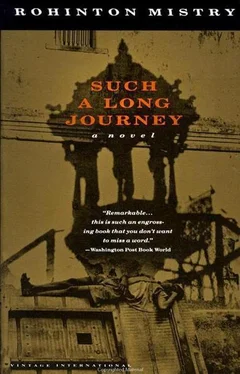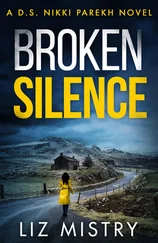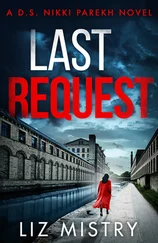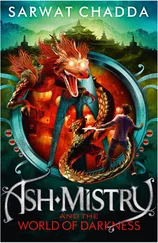The police report goes on to state that Mr. Bilimoria has admitted he perpetrated the fraud in order to expedite aid to the guerrillas in East Pakistan. ‘The Mukti Bahini are brave and courageous fighters,’ the RAW officer is said to have written in his confession, ‘and I was growing tired of watching the bureaucrats drag their feet.’ He claims the idea was entirely his own, and his zealousness in helping the Mukti Bahini is to blame.
A Footnote: While the alleged facts of this case are certainly unique, what strikes this reporter as even more unusual are the circumstances surrounding this highly imaginative crime. For example, assuming that Mr. Bilimoria has the talent of voice impersonation, is it routine for our national banks to hand over vast sums of money if the Prime Minister telephones? How high up does one have to be in the government or the Congress Party to be able to make such a call? And was the Chief Cashier so familiar with Mrs. Gandhi’s voice that he accepted the instructions without any verification whatsoever? If yes, does that mean that Mrs. Gandhi has done this sort of thing frequently? These questions cry out for answers, and till the answers are heard, clearly and completely, the public’s already eroded confidence in our leaders cannot be restored.
Dilnavaz handed Gustad the second cup of tea as he finished reading. It slipped through his fingers to the floor. The cup shattered, the hot liquid splashing his right foot and ankle.
‘What’s the matter? Are you feeling all right?’ She felt his forehead in alarm, thinking it was the paan.
‘Of course I am all right,’ he said irritatedly, ‘you are the one who dropped the cup.’ He made no attempt to pick up the broken pieces or wipe his foot. ‘Jimmy has been arrested.’
‘What?’ She took the paper and sat beside Dinshawji who was much calmer now. Gustad wondered what he was thinking. ‘Believe me, Dinshu, I had no idea, or I would never have done it. I would never have asked you—’
‘Where is the question of that?’ said Dinshawji gently. ‘There is no doubt in my mind about you at all.’
‘He lied. Major Bilimoria lied from the beginning. About everything! To me!’
‘Yes, but I am wondering what to do now,’ said Dinshawji.
‘We took such a risk. For his stolen ten lakh rupees. For a bloody crook, thinking we were doing something good!’
‘Yes, yes, Gustad,’ said Dinshawji calmly. ‘But we cannot change that now. Fait accompli. Jay thayu tay thayu. Now we have to think about what to do with the money.’
‘Dinshawji is right,’ said Dilnavaz, surprised to hear him speak so sensibly.
‘I’d like to burn it all. The way that dogwalla idiot burned the newspapers,’ said Gustad bitterly.
‘First of all, I think we should stop depositing it,’ persisted Dinshawji, still on the rational track.
‘But what about the money already in the bank?’
‘Just leave it the way it is. Maybe Ghulam Mohammed will contact you. Or you can contact him.’
‘But he could also be in jail,’ said Dilnavaz. ‘We don’t know how far he was involved in it. Maybe we should go to the police with everything.’
Gustad remembered: ‘Ghulam Mohammed is not in jail. I’ll go to him tomorrow. Peerbhoy Paanwalla told me he saw him today, looking very upset and worried. No wonder. Yes, he is definitely involved in this. Too risky for us to go to the police. You know what kind of dangerous fellow he is.’
‘Is he?’ asked Dinshawji.
‘Of course,’ said Gustad, then remembered in time that Dinshawji knew nothing about the cat and bandicoot. ‘That is, I am assuming.’
‘I still cannot believe,’ said Dilnavaz, ‘our Jimmy would do something so crooked.’
‘People change,’ said Gustad. ‘In his confession it says money was for guerrillas. Then why did he send ten lakh to me? My right hand I will cut off and give you if this is not something crooked. What kind of guerrilla pipeline is that, from Delhi to Chor Bazaar to Khodadad Building?’
‘True,’ said Dinshawji. ‘But we don’t know the whole story. And I think the reporter is asking some good questions. Everyone says Indira and her son — the motorcar fellow — are involved in all kinds of crooked deals, that they have Swiss bank accounts and everything.’
‘That’s right,’ said Dilnavaz. ‘And there has been talk of worse things. When Shastri died.’
‘I remember that,’ said Dinshawji. ‘It was the time I had my gall-bladder operation, almost six years ago. I was in bed when the news came on the radio.’
‘Yes,’ said Dilnavaz. ‘And before that, when her father was still alive, there was poor Feroze Gandhi. Nehru never liked him from the beginning.’
‘That was tragic,’ said Dinshawji. ‘Even today, people say Feroze’s heart attack was not really a heart attack.’
Gustad got annoyed. ‘What does all this gossip and rumour have to do with the Major? He is the one who tricked me! If politicians are crooks and rascals, how does that change what Jimmy did?’
Dinshawji saw it was time to leave. He shook hands with them both. ‘Sorry for bringing so much bad news.’ He plodded to the door.
‘On the contrary, thanks for coming. Without your newspaper we would never have known about it,’ said Gustad. After Dinshawji had gone, he sat on the sofa for a while, worrying the doll’s veil. ‘My bakulyoo didn’t take her doll to bed tonight.’ Then he went and stood by the window. ‘What kind of evil spell are we caught in, I wonder sometimes. How long is this punoti going to last?’
Tehmul saw his figure framed in the light. ‘Gustad. PleaseGustadplease. Theywouldnotletmetouchnotoncenotonce. Pleasepleaseplease. Onlyonceonly.’
Gustad raised his arm and waved it vaguely. He drew the curtain, having no time or compassion to spare tonight. There was the sound of sniffling outside, and a sob; then the sound of footsteps: a light step first, then heavy and dragging, alternating till they faded.
Nearing the crossroads, Gustad saw the cinema billboard lights blaze in the dusking sky. Synchronized bulbs flashed around gigantic cut-outs of hero and heroine, guardians of the city’s evening chaos; behind them loomed a bearded villain, nastily twisting his villainous lips.
Outside the Aarey Colony milk booth, three boys in tattered vests and a little girl in scavenged ankle-length blouse scrambled round the wire racks, examining the used bottles. The booth attendant bellowed to leave the bottles alone. Bad for business, he said, nuisances staring with big-big eyes as if they never saw milk in their lives.
The children waited till he was absorbed in his work, then sneaked up again. The attendant heard the tinkling of bottles. He silently opened the door at the rear of the booth and leaped out as Gustad reached the corner.
The three boys escaped. The little girl was caught by the sleeve of her blouse-frock. ‘ Budtameez !’ said the man, and whacked her over the head. ‘Won’t listen when I tell you nicely!’ Whack, again. The child squealed and struggled. The boys watched helplessly. The man lifted his hand for the third blow, which never landed.
Gustad grabbed his collar from behind and the shock made him lose his grip. The boys clapped, and the girl quickly ran to a safe distance. Gustad spun the man around. ‘You have no sharam, a big donkey beating a tiny girl?’
‘All day they make nuisance,’ he whined. ‘Harassing my customers, grabbing their bottles before they even put them down.’ Gustad released the man’s collar. The little girl watched gratefully from her place of safety. She wiped her runny nose on a sleeve. How thin she is. Even skinnier than Roshan. ‘People don’t like to stop where there are beggars,’ the attendant continued. ‘If I don’t sell my quota, this booth will shut down. Then what will I do?’
Читать дальше












